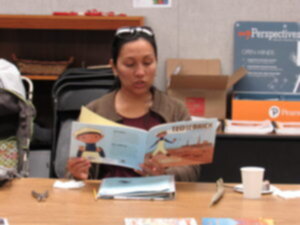
As defined by the National Education Association, cultural competence is “the ability to successfully teach students who come from a culture or cultures other than our own. It entails developing certain personal and interpersonal awareness and sensitivities, understanding certain bodies of cultural knowledge, and mastering a set of skills that, taken together, underlie effective cross-cultural teaching and culturally responsive teaching.”
Culture, in its broadest sense, is “the way of life” for a group of people, comprised of beliefs, values, symbols, attitudes, language, experiences, and religion. It can greatly shape a person’s sense of identity, how they fit into society, and characterize their behavior and personality. In a classroom setting, where students come from many different backgrounds, cultures can collide. In such an instance, it is especially important for educators to recognize these differences and how to assess the challenges that come with it. Being culturally competent and practicing culturally responsive methods can help educators to better listen, understand, and communicate effectively with their students, leading to an overall enriching and nourishing educational environment.
To read more about cultural competence, visit our blog, or plan on attending a workshop to understand in more detail why bilingual parent programs are beneficial to both parents and children as Hispanic parents move through the acculturation process of learning to live in a new culture, with family changes and new language development.
The Latino Family Literacy Project™ are experts at providing bilingual and meaningful parent involvement programs so that parents learn a new role for working with academics with their children.
